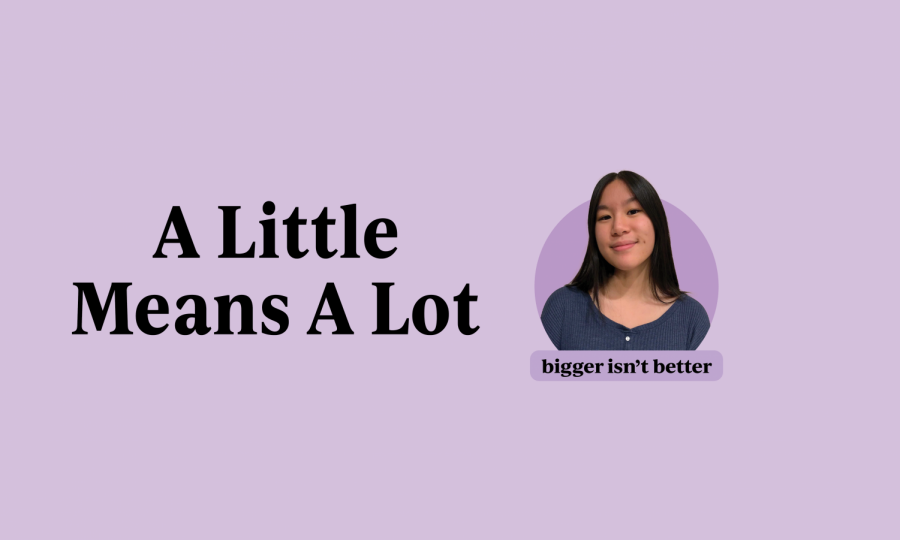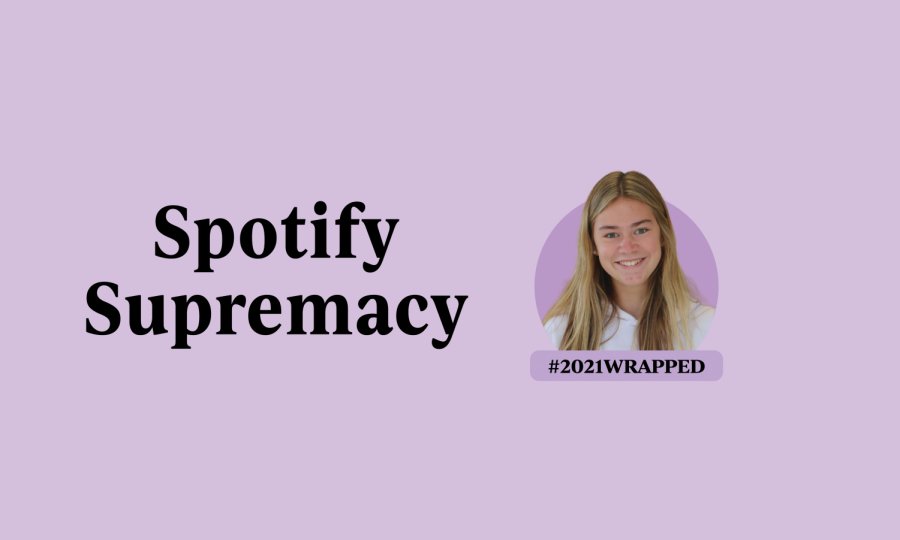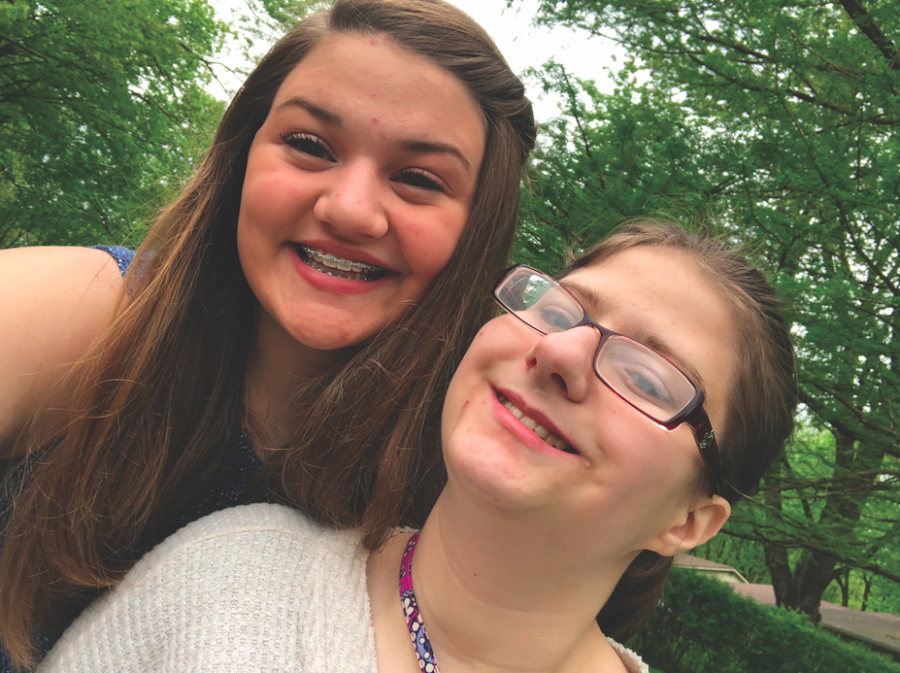In seventh grade, I came home to the yells of my sister who was screaming to my mom that someone at school called her a “retard.” My sister, who has special needs, was clearly upset by the fact that someone said that and it affected her day at school and how she would continue to lead her life. This is when I decided to look into what the “R-word” truly meant and why it hurt her so much.
“Retard” originally meant “slowed” or “holding back,” and even in the earlier 1900s, it wasn’t used as a backward insult to people with disabilities; it was just another term for “moron,” which at the time was considered a medical term, denoting an adult with a mental age of about 8 to 12. As years went on, however, the word morphed to mean “intellectually disabled.”
Today, often the R-word is one with a lot of social baggage, and people of all ages use the word as a slur used to belittle someone. With that in mind, it is far past time to retire the word entirely. The R-word is extremely disrespectful to those with disabilities and it degrades their worth as a human being in the eyes of others.
Imagine, for example, if you had blue eyes and someone used that trait—something outside of your control to change—as an insult to their friend. “Oh, they’re so blue-eyed,” they would say and laugh. Wouldn’t that offend you? Can you help that you have blue eyes? Of course not. People with intellectual disabilities are no different. They can’t control the way they were born, and it’s not right to speak harshly about their perceived differences.
In fact, rather than demean those differences, we should celebrate them. I have seen firsthand how beautiful it can be when someone loves a person with a disability and how much they love back. When people with intellectual disabilities, like my sister, feel accepted, they blossom. People with intellectual disabilities still have the same emotions, the same capacity to love that we all have. Luckily, despite being called the R-word, my sister has been more than fortunate to have so many amazing friends and family throughout her life, and I have seen what true kindness does to her and I have seen how much she can give in return.
The time is now to spread the word to end the word. People who say these types of awful slurs don’t understand the true impact their words have. People with disabilities are not just labels or defined by a word. They are just the same as you or me, and in many ways, they are so much better.
The views in this column do not necessarily reflect the views of the HiLite staff. Reach Emily Sandy at [email protected]
Click here to read a story about the evolution of inclusion at CHS



















![Joseph Broman, Mu Alpha Theta sponsor, grades tests for his honors precalculus/trigonometry class. Broman said, “I’m retiring from the Math Club next year and I’m just going to do Mu Alpha Theta so I can focus on that one and we can do more [speaker series] first semester.”](https://hilite.org/wp-content/uploads/2024/03/IMG_9502-1200x900.jpg)











![British royalty are American celebrities [opinion]](https://hilite.org/wp-content/uploads/2024/03/Screenshot-2024-03-24-1.44.57-PM.png)




















![Review: “The Iron Claw” cannot get enough praise [MUSE]](https://hilite.org/wp-content/uploads/2024/04/unnamed.png)
![Review: “The Bear” sets an unbelievably high bar for future comedy shows [MUSE]](https://hilite.org/wp-content/uploads/2024/03/unnamed.png)
![Review: “Mysterious Lotus Casebook” is an amazing historical Chinese drama [MUSE]](https://hilite.org/wp-content/uploads/2024/03/0.webp)
![Thea Bendaly on her Instagram-run crochet shop [Biz Buzz]](https://hilite.org/wp-content/uploads/2024/03/IMG_0165-1200x838.jpg)
![Review: Sally Rooney’s “Normal People,” is the best book to read when you are in a time of change [MUSE]](https://hilite.org/wp-content/uploads/2024/03/20047217-low_res-normal-people.webp)
![Review in Print: Maripaz Villar brings a delightfully unique style to the world of WEBTOON [MUSE]](https://hilite.org/wp-content/uploads/2023/12/maripazcover-1200x960.jpg)
![Review: “The Sword of Kaigen” is a masterpiece [MUSE]](https://hilite.org/wp-content/uploads/2023/11/Screenshot-2023-11-26-201051.png)
![Review: Gateron Oil Kings, great linear switches, okay price [MUSE]](https://hilite.org/wp-content/uploads/2023/11/Screenshot-2023-11-26-200553.png)
![Review: “A Haunting in Venice” is a significant improvement from other Agatha Christie adaptations [MUSE]](https://hilite.org/wp-content/uploads/2023/11/e7ee2938a6d422669771bce6d8088521.jpg)
![Review: A Thanksgiving story from elementary school, still just as interesting [MUSE]](https://hilite.org/wp-content/uploads/2023/11/Screenshot-2023-11-26-195514-987x1200.png)
![Review: When I Fly Towards You, cute, uplifting youth drama [MUSE]](https://hilite.org/wp-content/uploads/2023/09/When-I-Fly-Towards-You-Chinese-drama.png)
![Postcards from Muse: Hawaii Travel Diary [MUSE]](https://hilite.org/wp-content/uploads/2023/09/My-project-1-1200x1200.jpg)
![Review: Ladybug & Cat Noir: The Movie, departure from original show [MUSE]](https://hilite.org/wp-content/uploads/2023/09/Ladybug__Cat_Noir_-_The_Movie_poster.jpg)
![Review in Print: Hidden Love is the cute, uplifting drama everyone needs [MUSE]](https://hilite.org/wp-content/uploads/2023/09/hiddenlovecover-e1693597208225-1030x1200.png)
![Review in Print: Heartstopper is the heartwarming queer romance we all need [MUSE]](https://hilite.org/wp-content/uploads/2023/08/museheartstoppercover-1200x654.png)























![Review: Ladybug & Cat Noir: The Movie, departure from original show [MUSE]](https://hilite.org/wp-content/uploads/2023/09/Ladybug__Cat_Noir_-_The_Movie_poster-221x300.jpg)

![Review: Next in Fashion season two survives changes, becomes a valuable pop culture artifact [MUSE]](https://hilite.org/wp-content/uploads/2023/03/Screen-Shot-2023-03-09-at-11.05.05-AM-300x214.png)
![Review: Is The Stormlight Archive worth it? [MUSE]](https://hilite.org/wp-content/uploads/2023/10/unnamed-1-184x300.png)




